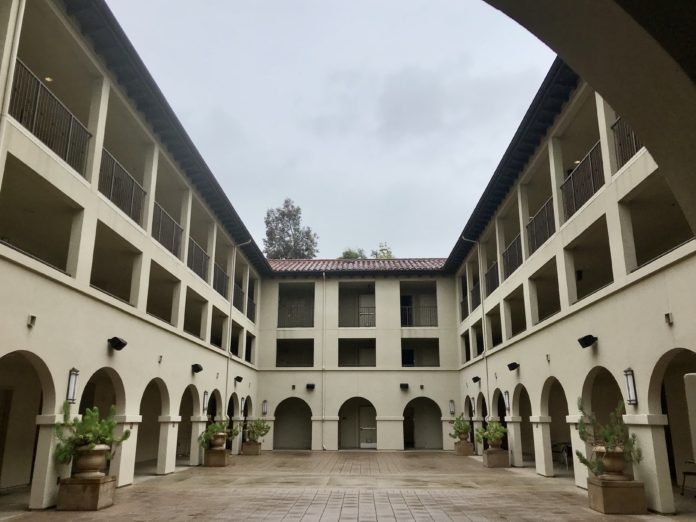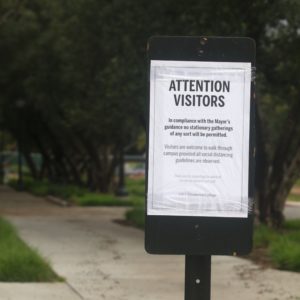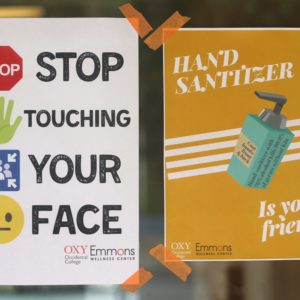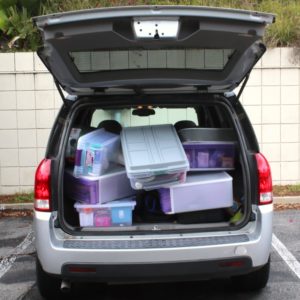
Students living in on-campus housing were asked to leave campus by March 20 when President Veitch announced Occidental’s transition to online learning via campus-wide email March 12. Those with special circumstances were asked to complete an application by March 15, which the Dean of Students staff reviewed. Associated Students of Occidental College (ASOC) President Nina Srdić Hadži-Nešić (junior) said that 432 students applied to remain at Oxy, and that 217 of those applications were initially approved.
Isaiah Thomas, director of Residential Education & Housing Services (REHS), said that international students, domestic students living abroad and students who had insufficient access to technology at home were among those permitted to stay on campus. He said $300 would be sent to all students who decided to move off campus to cover travel costs.
In an email sent to all Occidental students, Director of Communications Jim Tranquada said that the $300 travel credit would be given in addition to a room and board refund that students receive if they move off campus.

According to Srdić Hadži-Nešić, initial emails sent out by the college and by ASOC contained mixed messages about the housing application and move-out processes.
“Part of it is because this is such an uncharted process for the college and all of us,” Srdić Hadži-Nešić said. “In all honesty, I saw REHS and all these other departments, Dean of Students, trying to figure it out as we go.”
Srdić Hadži-Nešić said that when college officials put the form out, they knew neither how many students would apply nor the number of students they would need to house. She said that ASOC made a case for students who needed to stay.
“It was understood that all those who needed to stay don’t have another safe place to go — international students who can’t go back to their countries and so on — [and] all the severe circumstances should be approved,” Srdić Hadži-Nešić said. “But it was pretty uncharted in terms of the exact criteria. That’s, I think, where the mixed messaging happened.”

Daviona Moore (junior), a residential advisor (RA) for Pauley Hall, was one of the students whose petition was denied by the Dean of Students office. Her friends who had applied to stay on campus were all approved. Moore appealed the decision and managed to stay on campus.
“I think everything was so rushed and chaotic,” Moore said. “The petition was kind of slipped in with a bunch of other emails. We were told about the petition, but I feel personally like the parameters around the petition — what it entailed, what happens if you are approved, what happens if you aren’t — I feel like those parameters weren’t clearly defined, which I had a problem with.”
Srdić Hadži-Nešić said that many students who remain on campus have also been asked to move to one of three residence halls — Berkus, Newcomb and Bell Young — for better resource allocation and safety.
Thomas said that some residence halls only had one or two student residents, which was a cause for safety concerns. REHS also tried to consolidate students into halls that had adequate amenities for the summer months.
“We know that many of many of our students on campus were not in rooms or in residence halls that were capable of air conditioning,” Thomas said. “So from a comfort perspective, that was one thing we looked at. Additionally, we knew that some halls just had better amenities overall.”
Morgan Crotta (junior) said that she was frustrated by the college’s decision to consolidate housing locations.
“Moving is an extremely stressful activity for anyone, and adding this stress to what we are already experiencing from school and the COVID-19 situation is just a bad mix,” Crotta said. “Now, while I am still struggling with both my classes and mental health, I have to pack up and change one of the few things that gave me a sense of stability and comfort.”
Crotta said that she already had to ask her professors for extensions on some of her work. She will have to move halls while also attending online lectures and doing homework and exams.
Srdić Hadži-Nešić said that she was nervous about living in close proximity with other students, and that consolidation seemed counterintuitive to the goal of social distancing.

According to Thomas, the consolidation measures will allow for students to maintain distance.
“Berkus’ occupancy is about 275 students,” Thomas said. “If we have a third of the students, the current students we have there, that’s about 35 to 40 students living in Berkus is in a space of 275. So there’s still going to be an ample amount of space.”
Thomas said as long as students maintain social distancing and wash their hands, they will not increase their risk of exposure. He added that limiting student residence to three halls would make it easier for the college to maintain cleanliness and deal with any potential virus cases.
“If a student is suspected of having and [is] exhibiting COVID-19 symptoms, there is a protocol [where] that student will work closely with Sara Semal,” Thomas said. “They’ll be put in what we call an isolation room where it’ll be by themselves with a private bathroom that we reserved in a hall where they’ll be isolated for 14 days by themselves.”
The college has additional procedures for helping students take care of their everyday needs if they do contract the virus, according to Thomas. He added that representatives from Emmons would help monitor the students’ health in such a case.
“All faculty, staff and students are doing the very best we can, in very challenging and uncertain times,” Thomas said. “We want students to let us know, what are the things you need? How can we create a sense of normalcy in a world of not normal?”
![]()






























